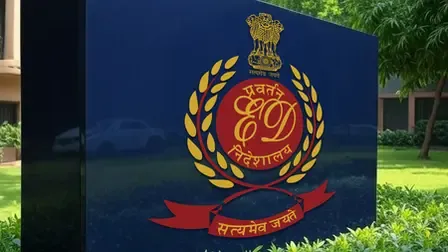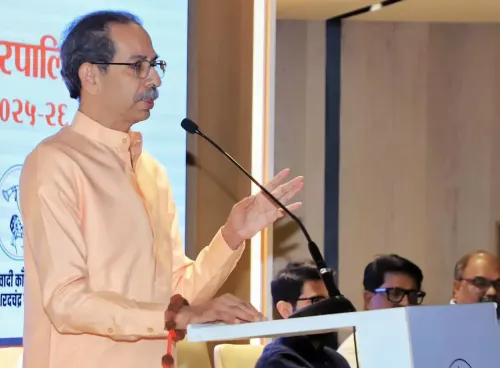Are ED Officials Targeting Sand Smuggling in Bengal?

Synopsis
Key Takeaways
- The ED's raids mark a significant crackdown on sand smuggling in West Bengal.
- Operations are taking place in Behala, Jhargram, and Kalyani.
- Sheikh Zahirul Ali is a key figure linked to the sand trading business.
- Local demand for sand has led to illegal price hikes.
- Forged permits are often used to conduct illegal mining.
Kolkata, Sep 8 (NationPress) Officials from the Enforcement Directorate (ED) have launched extensive raid and search operations at three distinct locations in West Bengal, beginning early Monday morning. These actions are part of an investigation into sand-smuggling operations prevalent in the state.
The locations where the central agency is conducting these operations include Behala on Kolkata's southern outskirts, Gopiballavpur in the Jhargram district, and Kalyani in the Nadia district.
This marks the first instance of the ED executing operations related to sand-smuggling in West Bengal.
Each team of ED officials is accompanied by personnel from the Central Armed Police Forces (CAPF).
According to informed sources, in Jhargram, the raid is focused on the residence of an individual directly linked to the sand trading business, identified as Sheikh Zahirul Ali.
His home is situated near the Subarnarekha River, known for being a site for sand smuggling.
Locals revealed that Sheikh previously served as a contractual village policeman with the West Bengal government before leaving that role to pursue his sand trading venture.
In Behala, operations are underway at the office of a company named G.D. Mining, which is also engaged in sand trading.
This organization maintains an additional office in Sector-V, Salt Lake, on Kolkata's northern outskirts, and sources indicate that the ED may expand its operations there.
Details regarding the simultaneous raid taking place in Kalyani remain undisclosed.
The ED estimates that the sand-smuggling operations in West Bengal involve illicit profits amounting to hundreds of crores of rupees.
Sources indicate that the significant demand for sand from the banks of the Subarnarekha River has led to its sale in open markets at rates double those set by the government.
Often, the permits issued by the state government for sand mining are forged, facilitating illegal mining activities run by racketeers.










